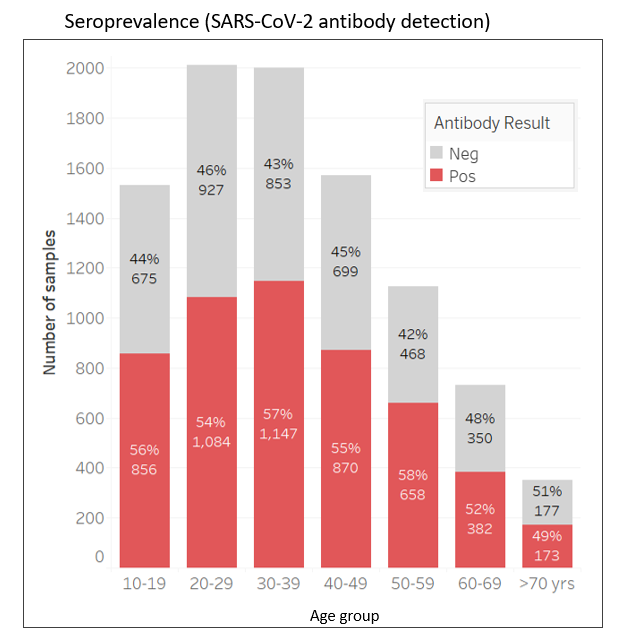CSIR-CCMB has studied the spread of SARS-CoV-2 in communities by studying its presence in waste water treatment plants as well as by checking for antibodies against the virus in blood of people in these communities

SARS-CoV-2 is shed in the stools of the COVID-19 individuals regardless of their symptoms. The virus can be detected in their stool samples even before the onset of clinical symptoms and for several days after the patient tests negative in conventional nasopharyngeal tests. Analysis of wastewater for the presence of SARS-CoV-2 genes can give a qualitative as well as quantitative idea of the spread of the infection in the respective society.
We collect sewage water samples from Sewage Treatment Plants, drains and lakes from several cities in India. We have standardized the protocol for detection of SARS-CoV-2 genes in sewage water samples, and estimation of the number of individuals infected in that community.
Our analysis of samples from Hyderabad city suggests that approximately 1-7% of the population of Hyderabad was already infected with coronavirus during July 2020 to August 2020. In 2020-21, we monitored the lakes of Hyderabad that are impacted by human activities to follow the infection trends in the city. Back then, we had also monitored the weekly infection trends in Prayagraj, Delhi, Chennai, Kolkata, Mumbai, Nagpur, Puducherry, and across 8 districts of the state of Andhra Pradesh. Currently, we are weekly monitoring 20 locations, mostly drains, in Hyderabad and 5 cities in India- Delhi, Chennai, Mumbai, Nagpur and Kolkata.
If you would like such a surveillance to be done in your city/community, please write to us at director@ccmb.res.in.
References:
- Longitudinal and Long-Term Wastewater Surveillance for COVID-19: Infection Dynamics and Zoning of Urban Community
- Defining the methodological approach for wastewater-based epidemiological studies-Surveillance of SARS-CoV-2
- Surveillance of SARS-CoV-2 spread using wastewater-based epidemiology: Comprehensive study
- Understanding SARS-CoV-2 Infection and Dynamics with Long Term Wastewater based Epidemiological Surveillance
- Comprehensive and Temporal Surveillance of SARS-CoV-2 in Urban Water Bodies: Early Signal of Second Wave Onset
Seroprevalence (SARS-CoV-2 antibody detection)

We, in collaboration with National Institute of Nutrition in Hyderabad, National Institute of Epidemiology in Chennai and Bharat Biotech conducted a serosurveillance of GHMC area of Hyderabad in January, 2021. The study found an overall SARS COV-2 seropositivity of about 54% among the population (>10 years and above) of GHMC, Hyderabad.
We highly recommend that irrespective of the current seropositivity, the maximum possible number of eligible individuals should get vaccinated, taking advantage of the available vaccines that provide robust protection. However, any benefits gained by high seroprevalence or the ongoing vaccination drive can be undone by emerging immune escape variants.